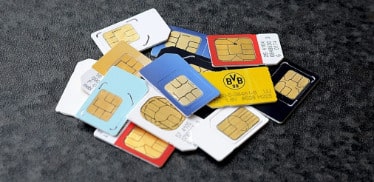An ongoing process which started on November 12 to deactivate SIM cards not biometrically registered in Uganda has seen over 1.4 million lines affected as the country’s Communication Commission (UCC) has vowed a clean sweep.
Per a report by New Vision, the move is in line with the Interception of Communications Act which requires that all SIM cards be linked to their owners’ national identification number (NIN). The legislation also mandates telecoms service providers to collect and keep personal identity and business information of all their SIM card subscribers.
Rebbeca Mukite, UCC head of public and international relations, is quoted as saying on a Kampala-based radio station that mobile phone users can verify using a USSD code whether or not their SIMs are properly registered.
The SIM registration, she said, is done by users going to physical offices of their network providers with their national ID card where their biometrics are verified.
Mukite said the move is meant to “weed out” unscrupulous persons who use SIM cards linked to different identities to commit crime and get away with it. Such SIMs, she said, are often stolen.
In the meantime, those whose lines have been suspended by the UCC have been given 90 days to regularize their situation to have their SIM cards recycled and re-assigned to new users.
Mukite said, as cited in another New Vision story that mobile money can be withdrawn from affected SIMs, but new deposits cannot be made to them. The suspended SIMs can also be used to pay utility bills, she added.
Biometric SIM registration is taking roots in many countries especially in Africa, with governments arguing that the move is necessary in fighting crime. Notwithstanding, there have been a push back in the Philippines and concerns in Tanzania over data privacy issues linked to the process.
Early this year, Ghana ordered telcos to suspend over eight million SIM cards that were not linked to users’ biometrics.
Article: Uganda suspends over 1.4M SIM cards not linked to users’ biometrics
